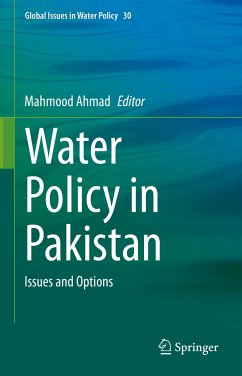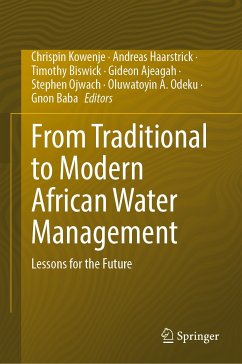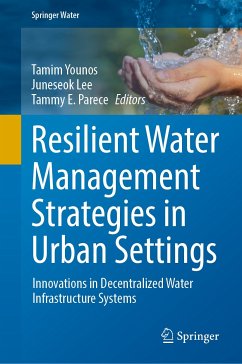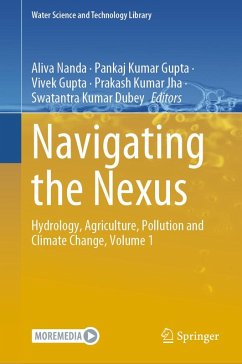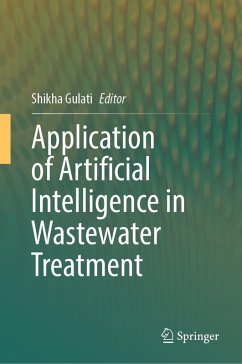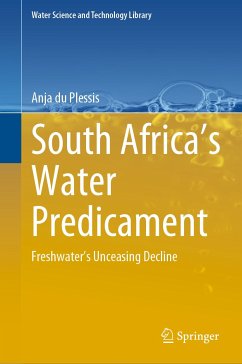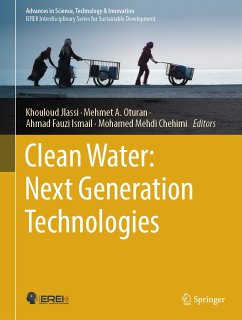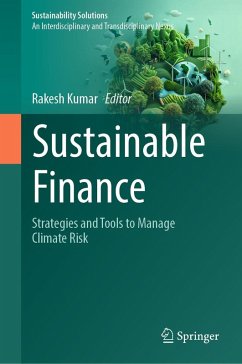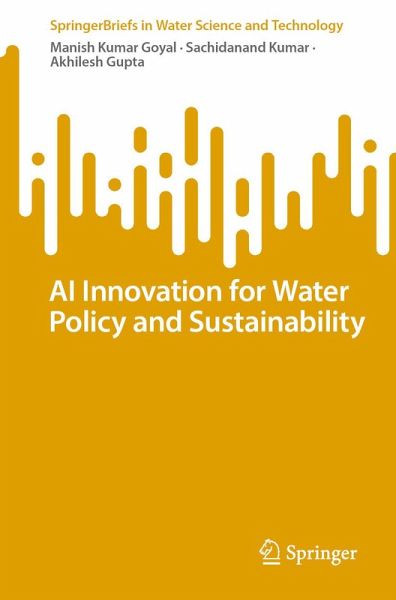
AI Innovation for Water Policy and Sustainability (eBook, PDF)
Versandkostenfrei!
Sofort per Download lieferbar
40,95 €
inkl. MwSt.
Weitere Ausgaben:

PAYBACK Punkte
20 °P sammeln!
In the face of unprecedented challenges in managing water resources, the integration of artificial intelligence (AI) emerges as a revolutionary force, reshaping the landscape of water conservation, treatment, irrigation, policy formulation, watershed management, and the monitoring of groundwater and surface water. This book explores the transformative role of AI in the water domain, exploring cutting-edge applications and innovative solutions that promise to address pressing issues in sustainable water management. As we navigate the complexities of a changing climate, population growth, and ur...
In the face of unprecedented challenges in managing water resources, the integration of artificial intelligence (AI) emerges as a revolutionary force, reshaping the landscape of water conservation, treatment, irrigation, policy formulation, watershed management, and the monitoring of groundwater and surface water. This book explores the transformative role of AI in the water domain, exploring cutting-edge applications and innovative solutions that promise to address pressing issues in sustainable water management. As we navigate the complexities of a changing climate, population growth, and urbanization, the chapters within this book offer insights into how AI technologies can enhance efficiency, optimize resource utilization, and provide data-driven strategies for ensuring the resilience and sustainability of our vital water ecosystems. From intelligent water treatment systems to precision agriculture and policy decision support, each chapter unfolds a narrative of AI-driven advancements, providing a comprehensive guide for researchers, practitioners, and policymakers navigating the intersection of artificial intelligence and water management.
Dieser Download kann aus rechtlichen Gründen nur mit Rechnungsadresse in A, B, BG, CY, CZ, D, DK, EW, E, FIN, F, GR, HR, H, IRL, I, LT, L, LR, M, NL, PL, P, R, S, SLO, SK ausgeliefert werden.



